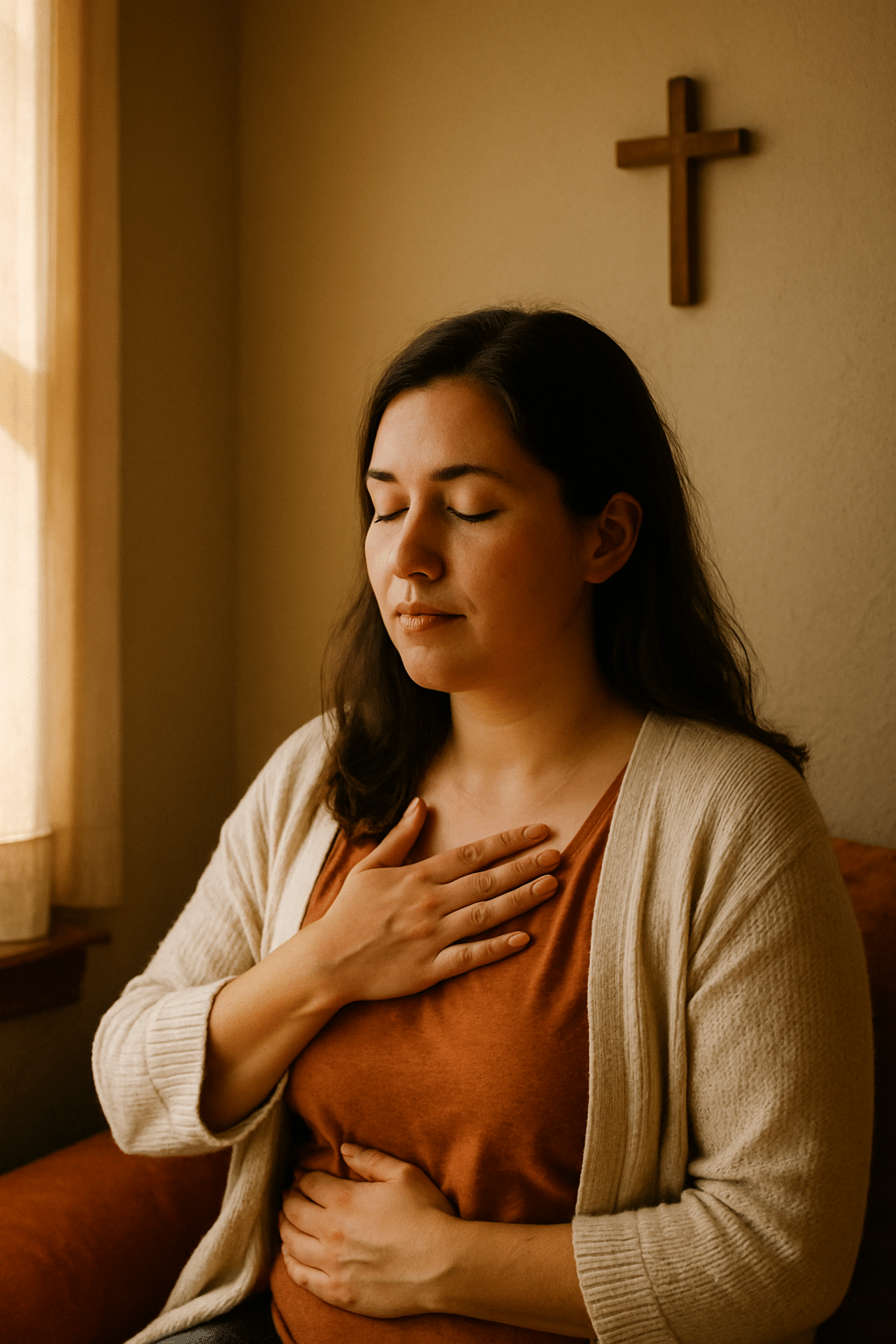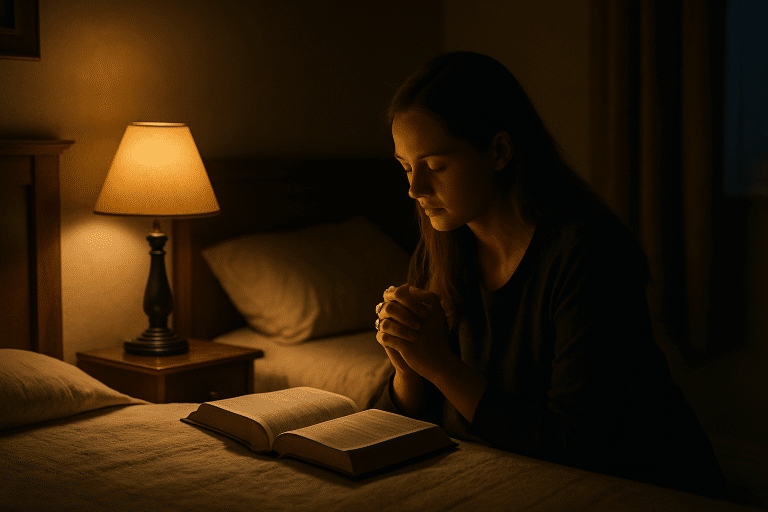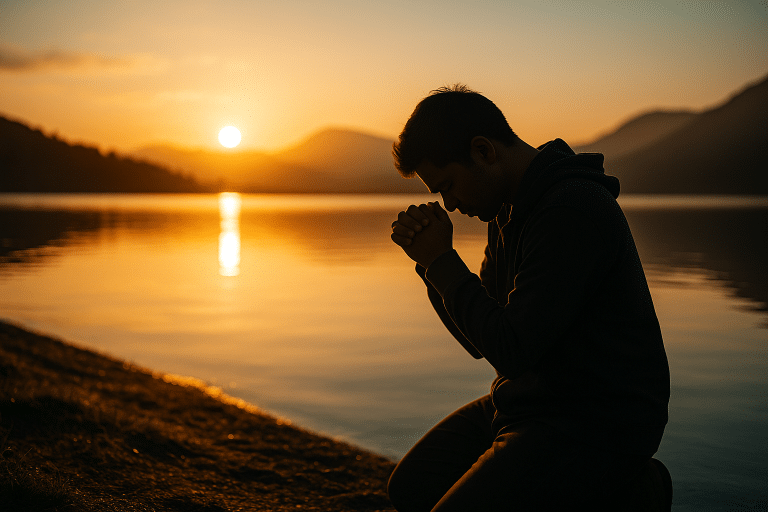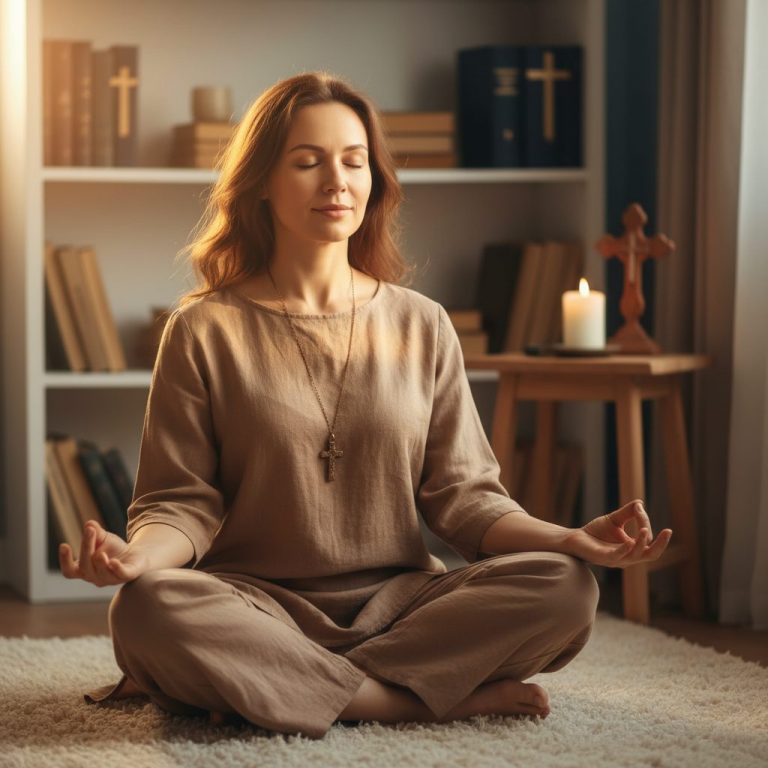Grounding Techniques for Anxiety – Proven Methods & Biblical Hope
Estimated reading time: 5 minutes
Accordingly, anxiety can feel like a storm, yet Scripture assures us that we can experience peace in Christ. Grounding techniques for anxiety anchor our minds and bodies in the present moment, calming the sympathetic “fight‑or‑flight” reaction. This article explains grounding techniques for anxiety, and reminds you that God is near. These grounding techniques for anxiety are evidence‑based yet easy to learn. Furthermore, modern clinical research and centuries of Christian devotional practice converge on these simple habits, giving believers tools that work in church pews, office cubicles, or anywhere fear strikes.
Why Anxiety Grounding Techniques Work: The Nervous System Meets Biblical Wisdom
First, grounding activates the parasympathetic nervous system, often through slow diaphragmatic breathing that stimulates the vagus nerve. Consequently, heart rate slows and cortisol drops. A 2024 Cedars‑Sinai review notes that controlled belly breathing measurably raises vagal tone, shifting the body toward rest and digestion. Similarly, the apostle Paul encourages believers to “let the peace of Christ rule” their hearts (Col 3:15). When we breathe deeply while meditating on a verse, physiology and faith work together to settle the soul.
Moreover, grounding interrupts catastrophic thinking loops by forcing sensory attention outward. Psychologists call this “attentional anchoring.” That principle echoes 2 Corinthians 10:5, which urges us to “take every thought captive.” By naming what we see, hear, and touch, we take anxious thoughts captive and replace them with present‑moment reality and God’s promises.
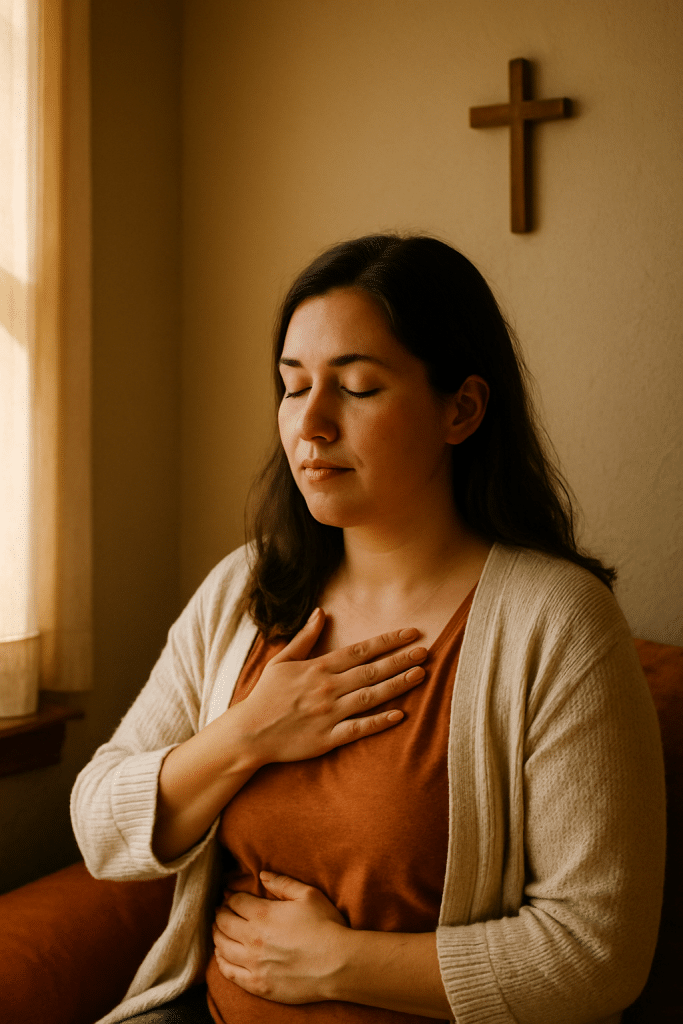
Five Clinically Proven Grounding Exercises For Anxiety Every Christian Can Use
1. 4‑6 Breath Prayer Anxiety Grounding Technique
Additionally, inhale for four counts, silently saying, “Lord, give me peace,” then exhale for six counts, praying, “I cast my cares on You.” Repeat for two minutes. Because exhalation exceeds inhalation, the vagus nerve fires, lowering blood pressure. A 2023 meta‑analysis found slow‑breathing interventions produced a medium effect size for acute anxiety relief.
2. 5‑4‑3‑2‑1 Sensory Scan
Next, notice five things you see, four you touch, three you hear, two you smell, and one you taste. Verywell Mind reports that most users feel calmer before finishing the list. While scanning, thank God for each item to weave gratitude (Phil 4:6) into the exercise.
3. Progressive Muscle Relaxation Grounding Strategy for Anxiety
Therefore, tense each muscle group for five seconds, then release for ten. Start with feet and move upward. Researchers at the Mayo Clinic highlight PMR as effective for generalized anxiety disorder when practiced daily for four weeks.
4. Cold Water “Dive Reflex”
Afterwards, splash cool water on your face or hold an ice‑pack to the temples for twenty seconds. The temperature shift triggers a mammalian dive reflex, slowing heartbeat. A 2021 controlled study showed significant reductions in panic symptoms within one minute of exposure.
5. Grounding Object or Weighted Item
Finally, grip a smooth stone, wooden cross, or weighted blanket. Focus on its texture and weight while praying Psalm 18:2, “The Lord is my rock.” Weighted lap pads demonstrated a 31 % drop in self‑reported anxiety in a 2020 occupational‑therapy trial.
Integrating Grounding with Daily Devotion
Moreover, grounding becomes richer when we connect it to worship, Scripture, and community. For example, worship music adds auditory grounding while directing affection toward God, mirroring 1 Samuel 16:23 where David’s harp eased Saul’s distress. Likewise, practicing the 5‑4‑3‑2‑1 scan during a nature walk can transform the exercise into praise, fulfilling Psalm 19:1’s declaration that creation proclaims God’s glory.
Accordingly, keep a “peace card” in your Bible or phone listing favorite verses (Isa 41:10; John 14:27). When anxiety rises, breathe slowly and read the verse aloud. The spoken Word provides cognitive grounding and spiritual reassurance. It is one of the fundamental grounding strategies for anxiety.
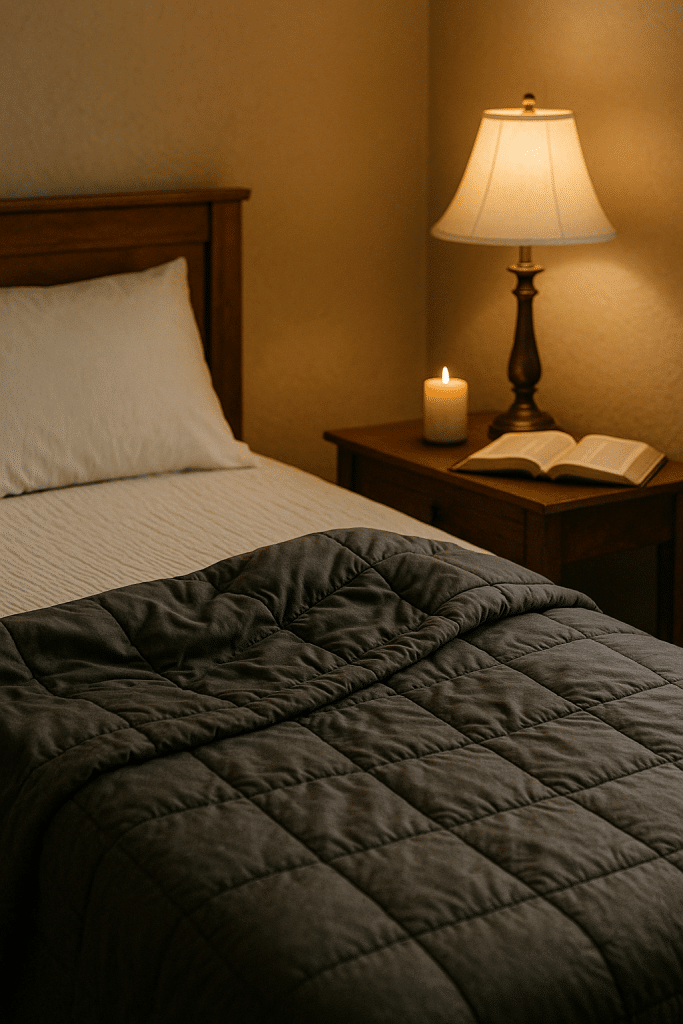
Helpful Products that Support Grounding Practice
Because tools make habits easier, the following items earned high ratings in recent reviews and align with clinical guidelines:
- 15‑lb Weighted Blanket – mimics deep‑pressure touch to lower arousal.
- Serenilite Hand‑Therapy Stress Balls – portable tactile grounding.
- TheraICE Reusable Cold Gel Face Mask – delivers safe “dive‑reflex” cooling.
Although products are optional, many believers testify that these items make their grounding strategies for anxiety consistent. Reviewer Marta noted her weighted blanket “feels like God’s hug,” and her sleep‑quality score improved 18 % in two weeks. Occupational therapists also observe that stress balls discharge excess adrenaline during meetings. For detailed guidance, visit cornerstone resources Biblical Verses for Anxiety and Deep Breathing Exercises.
Note: These are affiliate links; feel free to locate similar products locally.
When to Seek Professional Help
Sometimes anxiety persists despite diligent practice. Accordingly, consult a licensed therapist or physician if worries last six months, interfere with vocation, or trigger panic attacks. The Mayo Clinic affirms that combining cognitive‑behavioral therapy with medication often yields the best outcomes. Remember, taking an SSRI is no more unspiritual than taking insulin; professional counselors routinely teach grounding techniques for anxiety during the first session.
Conclusion: Practice Peace Daily
Therefore, start small: choose one grounding technique for anxiety and rehearse it today. Over weeks you will build neurological pathways of calm and embed Scripture deep in your heart. As Zechariah 4:10 reminds us, never despise small beginnings because God’s peace partners with your practice.
Because practice sustains progress, place reminders on your phone that say, “Use my grounding techniques for anxiety now.” Over the next thirty days, track episodes in a simple journal; as outcomes improve, share your testimony with your small group. Your story may strengthen someone else searching for effective anxiety grounding techniques. Finally, bookmark this article so you can revisit the methods whenever stress intensifies.

